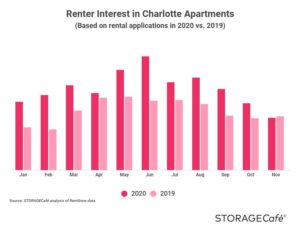 On February 1st, 2023, the Federal Reserve increased interest rates by a further 0.25 of a point. Leaving many asking will the Fed continue raising interest rates. Here we will discuss why the Fed has been increasing interest rates and what it means for residents of North Carolina.
On February 1st, 2023, the Federal Reserve increased interest rates by a further 0.25 of a point. Leaving many asking will the Fed continue raising interest rates. Here we will discuss why the Fed has been increasing interest rates and what it means for residents of North Carolina.
Why is the Fed Raising Interest Rates?
The latest rate hike by the Federal Reserve is the eighth increase over the past 12 months. The most immediate effect of interest rate hikes is not surprising on borrowing, credit, and savings rates. Interest rate increases can have a negative impact on the overall economy because when interest rates go up, it becomes more expensive for people to borrow money, which inevitably leads to a decrease in spending and investment.
Inflation hit 6.5% at the end of last year, and we experienced the highest rates in decades throughout 2022, and the Federal Reserve has been working to bring it back under control. The Fed is expected not to raise rates much more or keep them high for an extended period. However, the motivation behind the latest, be it a modest interest rate hike, is to bring a level of stability back into the economy and fight rising inflation.
What does it mean for North Carolina Residents?
The continuing interest rate hikes will make it more difficult for local businesses to hire and have already led to job cuts in some of the biggest tech companies in the United States. As with the rest of the country, rising interest rates are also slowing the pace of hiring in North Carolina.
The job growth rate has stalled slightly over the past few months. Although growth has slowed, the good news is that employers in North Carolina are still on the hunt for workers, with the employment rate expected to increase by around 1.5% over the year and the creation of around 72,800 new jobs this year.
The initial impacts of the impending recession are being felt in the tech sector, with several well-known companies, like Netflix, Microsoft, and Tesla announcing layoffs in recent months.
One of the first impacts being felt by North Carolina residents is in credit repayments and mortgage repayment if you are on a variable mortgage rate. The bad news is that even though the latest interest hike is minimal, the Fed is expected to keep raising rates for at least a few more months.
Paying off high-interest credit or consolidating debt is advisable in this current climate. As with credit cards, mortgage rates have taken a hit, with an average interest rate of 6.4% on a 30-year fixed mortgage, up from 3.55% at the same time in 2022.
Interest rate increases also bring a level of volatility to the foreign exchange or forex markets. This is a global issue, with not only the United States Federal Reserve raising rates but also other major central banks, including the European Central Bank, Bank of England, and the Bank of Japan, all following suit. What does that mean for forex trading investment? When a country raises interest rates, the currency appreciates.
This has been evidenced by the US dollar reaching its strongest level of 114.78 in September 2022. Interest is not the only indicator of the strength of a currency, as they are also significantly impacted by economic growth and geopolitical factors. Many traders look to take advantage of the volatility in interest rates, particularly through CFDs.
Thankfully, higher interest rates mean saving accounts are benefiting, with some high-yield online saving accounts offering a rate of 4.35%. Hopes are that global banking institutions get a handle on inflation by the end of this year, with markets already pricing in a break in interest rate hikes by the end of the first quarter. For now, evaluating credit card repayments, mortgage rates, and the potential for investments and savings is advisable.
